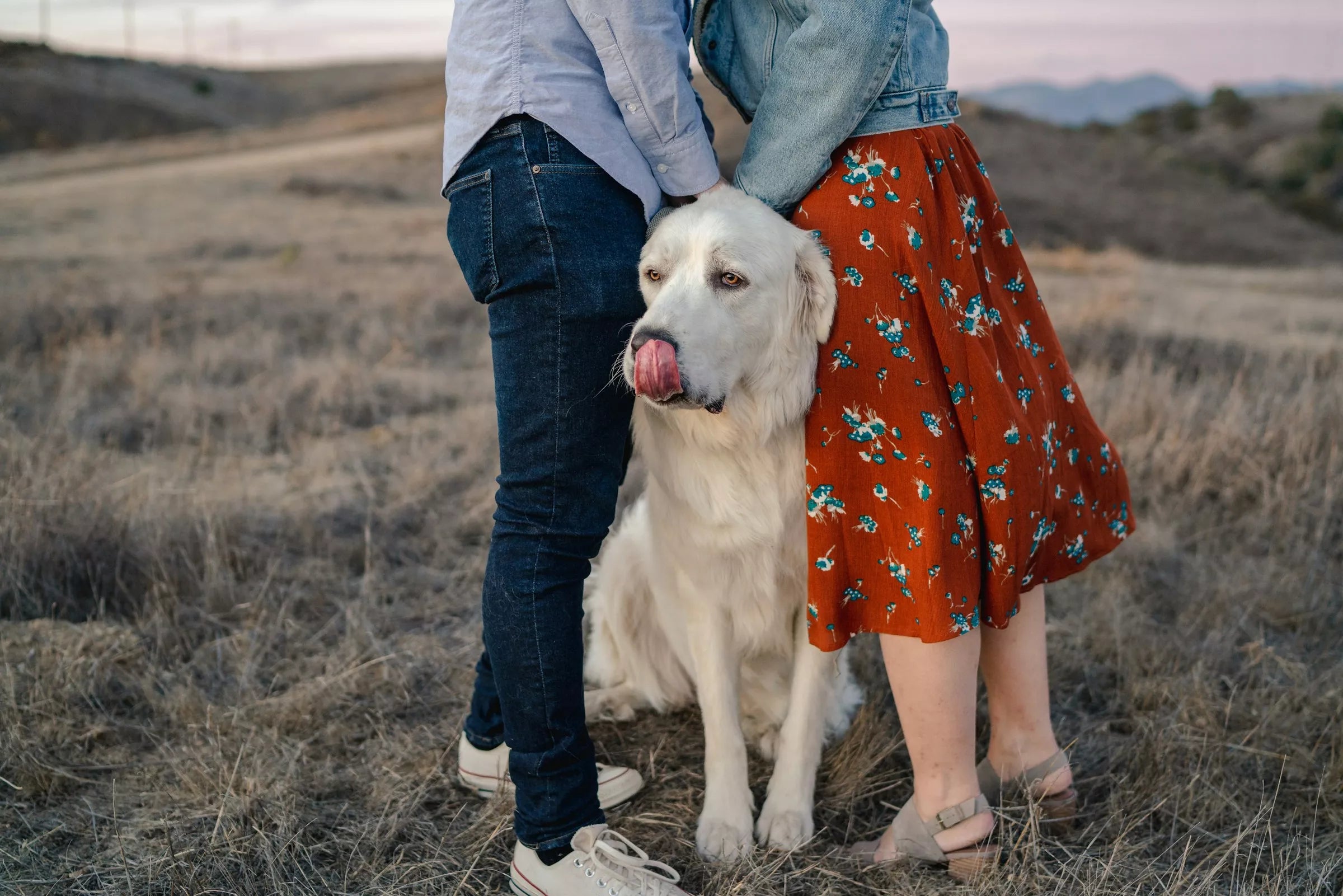Introduction
As a dog parent, there’s nothing more rewarding than knowing your furry best friend is happy and healthy. Dogs communicate their well-being through various signs, but do you know what to look for? Whether you’ve just adopted a new pup or have been a dog mom for years, understanding these signs will give you peace of mind and help you bond even more with your loyal companion.
Here are five tell-tale signs that your dog is feeling great—both inside and out!
1. A Shiny, Smooth Coat

One of the first indicators of a healthy dog is their coat. If your dog’s fur is shiny and smooth, that’s a great sign of overall health. A well-maintained coat shows that they are getting the right nutrients and are free of any underlying skin or health issues. If your pup’s fur feels soft to the touch and gleams in the sunlight, that’s a good indicator they’re in top shape.
The Connection Between Coat Health and Overall Well-being
A dog’s skin and coat are windows to their internal health. When they’re well-nourished, hydrated, and free of parasites, it shows through a luscious, healthy coat. On the flip side, a dry or patchy coat can indicate issues like allergies, poor diet, or even stress. It’s always a good idea to keep an eye on how their fur feels and looks.
Regular Grooming and What It Reveals
Brushing your dog regularly isn’t just about keeping them looking pretty. It’s also an opportunity to check for bumps, fleas, or any dry spots on their skin. Plus, grooming helps spread natural oils across their coat, keeping it healthy.
2. A Good Appetite

Does your dog eagerly await mealtime, wagging their tail as they watch you fill their bowl? A healthy appetite is one of the clearest signs your dog is happy. Dogs that enjoy their meals and eat consistently are generally thriving.
The Role of Proper Nutrition
Feeding your dog the right amount of high-quality food is crucial for their well-being. A balanced diet rich in protein, healthy fats, and essential vitamins helps maintain their energy levels, supports their immune system, and keeps their coat shiny.
Consistency in Eating Habits
While a good appetite is a positive sign, drastic changes in eating habits can signal an issue. If your dog suddenly becomes picky or refuses food, it’s worth looking into potential causes. It might be as simple as them not liking the new flavor of their kibble, or it could indicate a health issue.
3. Bright, Clear Eyes

Your dog’s eyes say a lot about their health. Bright, clear eyes without discharge or cloudiness are signs that your dog is in good condition. Clear eyes not only mean good vision but also reflect their overall vitality.
Why Eye Health Matters
Healthy eyes mean that your dog isn’t dealing with infections, allergies, or other problems that could make them uncomfortable. If you notice redness, squinting, or excessive tearing, it might be time for a vet check-up.
Signs to Watch Out For
Keep an eye out (pun intended!) for things like yellowing in the whites of their eyes or discharge that sticks around. These could indicate anything from an infection to more serious health conditions.
4. A Playful and Curious Attitude

Dogs are naturally curious and playful, so when your pup shows an eagerness to engage with you or their environment, it’s a clear sign they’re feeling good. A dog that’s energetic, bounces around the house, or gets excited about their favorite toy is likely happy and healthy.
The Importance of Regular Exercise
Exercise plays a big role in your dog’s happiness. Daily walks, playtime, and other forms of physical activity keep your dog fit and mentally stimulated. Without enough exercise, dogs can become bored, anxious, or even develop destructive behaviors.
Engaging with Their Environment
A happy dog is curious about their surroundings. Whether it’s sniffing around the yard, investigating new toys, or even getting excited when you bring out the leash, these are all signs of a content and engaged pup.
5. A Healthy Weight

Maintaining a healthy weight is essential for your dog’s longevity and overall well-being. A dog that’s too thin or overweight is more susceptible to various health issues like joint problems, heart disease, and diabetes.
What’s Considered a Healthy Weight for Dogs?
Every breed has its own healthy weight range. You should be able to feel your dog’s ribs but not see them. If your dog looks well-proportioned and their waist is visible when viewed from above, they’re likely at a good weight.
How to Help Your Dog Maintain a Balanced Weight
To keep your dog at a healthy weight, focus on portion control and regular exercise. Make sure treats are given in moderation, and consider low-calorie alternatives like carrots or green beans if your dog is on the heavier side.
Signs That Indicate Potential Issues
While these signs point to a healthy, happy dog, there are a few red flags that may suggest something’s wrong. If you notice any drastic changes in your dog’s behavior, energy levels, or physical condition, it’s time to consult your vet.
When to See a Vet
If your dog suddenly becomes lethargic, loses interest in their food, or exhibits unusual behavior like hiding or aggression, there may be an underlying health issue. It’s always better to be safe than sorry, so don’t hesitate to get professional advice.
Behavioral Changes to Pay Attention To
Sometimes, a happy dog may go through phases where they’re less playful or seem more withdrawn. If this behavior lasts more than a few days, it’s worth keeping a closer eye and possibly scheduling a vet visit.
How to Keep Your Dog Happy and Healthy
Now that you know the signs of a happy, healthy dog, here’s how you can help maintain their well-being.
The Role of Routine Vet Visits
Regular check-ups can catch potential health issues before they become serious. Your vet can advise you on vaccinations, dental care, and any specific health concerns related to your dog’s breed.
Mental Stimulation and Social Interaction
Dogs need mental stimulation just as much as physical exercise. Puzzle toys, training sessions, and interaction with other dogs can keep them mentally sharp and prevent boredom.
Conclusion
Your dog’s happiness and health go hand in hand. By keeping an eye on their coat, appetite, eyes, playfulness, and weight, you’ll know if they’re thriving. As a dog mom, there’s nothing more rewarding than seeing your pup live their best life, and by staying proactive about their health, you’ll ensure they stay happy and healthy for years to come.
FAQs
What are the most important factors for a dog’s health?
A balanced diet, regular exercise, mental stimulation, and routine vet visits are key to a dog’s overall health.
How can I make my dog happier?
Engage with them daily through play, provide a variety of toys, and ensure they get enough exercise and social interaction.
What if my dog seems to lose interest in playing?
A sudden loss of interest in play can indicate boredom, aging, or health problems. Consult your vet if the change persists.
How often should I take my dog to the vet?
It’s recommended to have a vet check-up at least once a year. Older dogs or those with health conditions may need more frequent visits.
Can diet changes affect my dog’s happiness?
Yes, a poor diet can lead to a lack of energy and health issues, affecting your dog’s mood and overall happiness.















Share:
Can Dog Pee Really Kill Plants?
Should I Get a Second Dog?